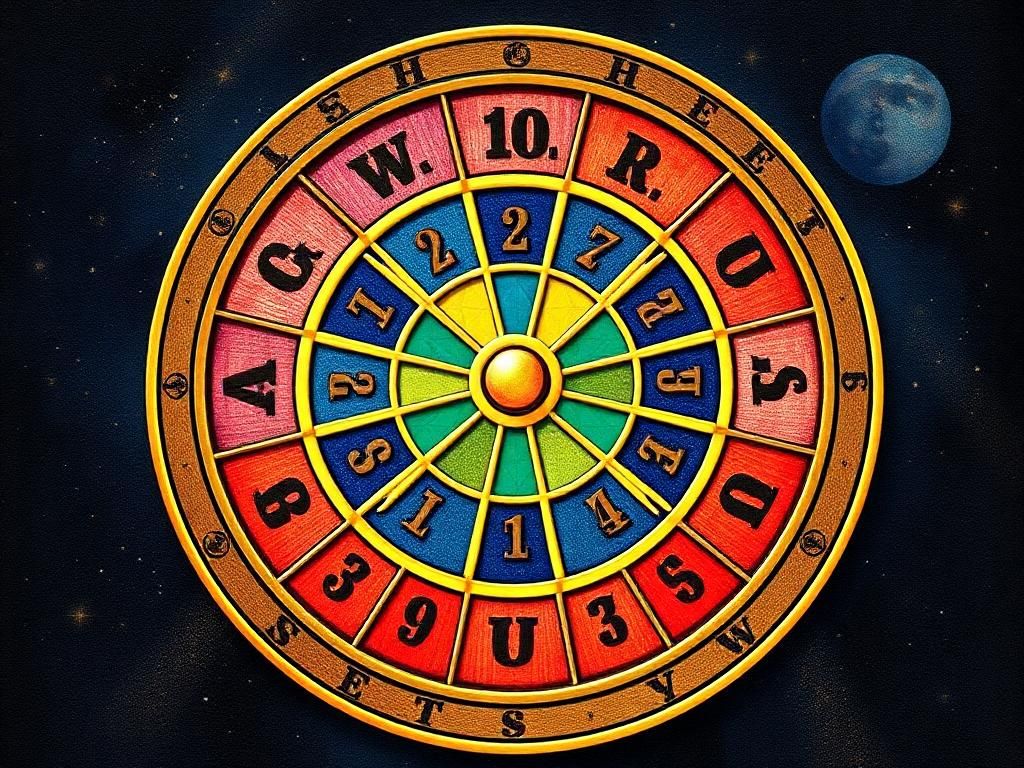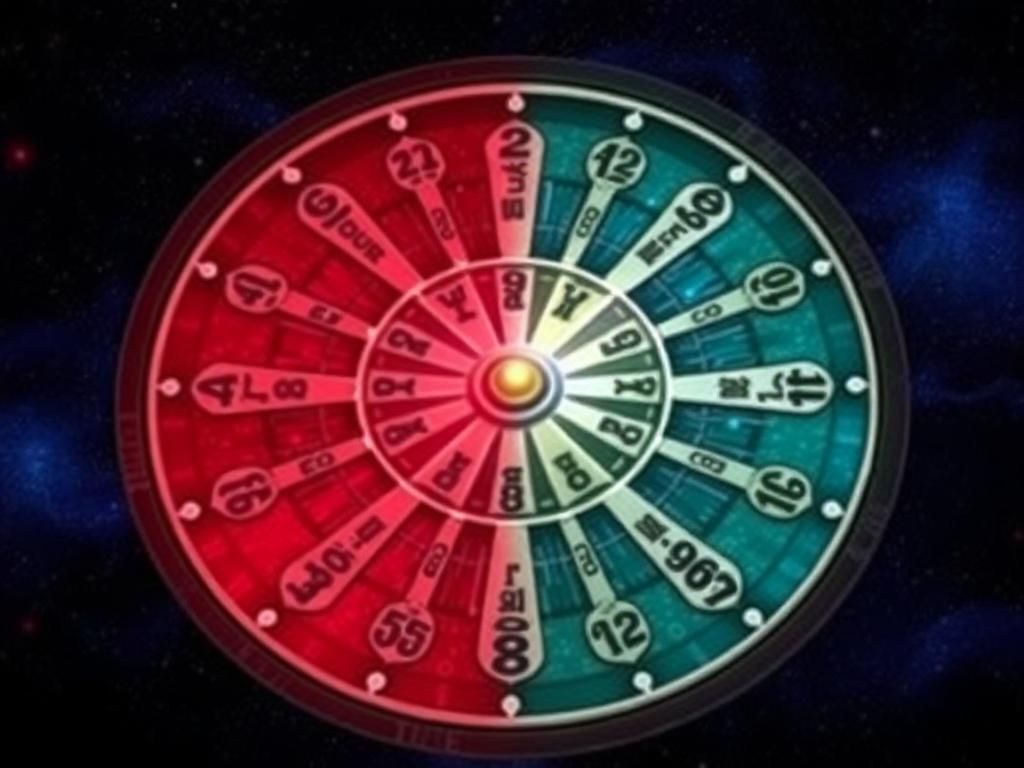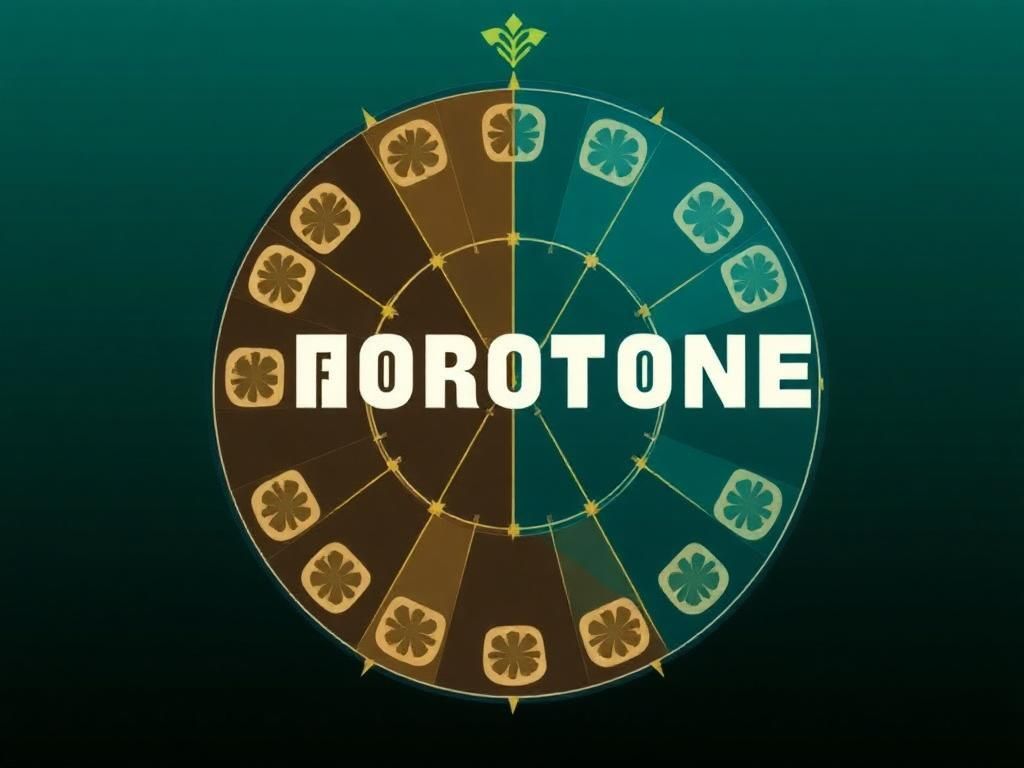Understanding the wheel of fortune reversed card in tarot can be transformative for anyone seeking insight into life’s challenges and opportunities. The Wheel of Fortune is a crucial card in the tarot deck, symbolizing fate, cycles, and change. When reversed, this card takes on a different, more complex interpretation, shedding light on feelings of stagnation, loss of control, and resistance to change. This article aims to explore the deeper meanings of the wheel of fortune reversed, its implications on various aspects of life, and practical strategies for navigating its challenges and leveraging its lessons.
Understanding the Wheel of Fortune
Symbolism of the Wheel of Fortune
The Wheel of Fortune is rich in symbolism. It represents fate and destiny, the eternal cycle of life that involves ups and downs. The wheel itself is connected to the cycles of nature—seasons change, lives evolve, and circumstances shift. Within the imagery of the Wheel of Fortune, you can find various symbols that amplify its meanings, including:
– **Sphinx**: Often depicted at the top of the wheel, the sphinx symbolizes wisdom and the mysteries of life.
– **Animals**: Creatures like the serpent, dog, and lion represent primal instincts and the forces of nature that influence our journeys.
– **Elements**: Fire, water, earth, and air are often embodied in the imagery, reflecting the comprehensive nature of change.
Understanding these symbols can illuminate how the wheel of fortune reversed suggests a turning point where one may feel disconnected from these cycles.
Upright vs. Reversed Meaning
When the Wheel of Fortune appears upright, it denotes positive changes, cycles of prosperity, and the idea of luck being on your side. It encapsulates the notion of progress and forward momentum, suggesting that life’s rhythm is in sync with the larger universe.
Conversely, in its reversed position, the Wheel of Fortune signifies a disruption of these rhythms, emphasizing unforeseen events and the feeling of being out of control. The importance of examining the wheel of fortune reversed lies in recognizing these disruptions in life, drawing attention to areas where stagnation or negativity may impact growth.
Meanings of the Wheel of Fortune Reversed
General Interpretations
The wheel of fortune reversed often conveys a feeling of being out of control, where events seem dictated by outside forces rather than by personal choices. Common interpretations include:
– **Feeling of Being Out of Control**: Life’s unpredictability can lead to distress.
– **Impediments to Personal Growth**: Stagnation can signal that one may be stuck in old patterns or unable to move forward.
– **Cycles Repeating Negatively or Stagnating**: This suggests a sense of being caught in a loop, where past mistakes may reemerge, causing distress or hindering progress.
Understanding these interpretations allows us to delve deeper into the implications of the reversed wheel.
Specific Contexts
– Love and Relationships
– Issues of instability often surface with the wheel of fortune reversed, leading to feelings of bad timing in romantic pursuits. Relationships may feel cyclical, where the same arguments and problems recur without resolution.
– Career and Finances
– The reversed wheel can point to setbacks and unexpected changes in one’s career or finances. Opportunities may present themselves at the wrong time, or poor decisions might lead to regrettable outcomes.
– Personal Growth
– Resistance to change is a prevalent theme. The wheel of fortune reversed may indicate self-sabotaging patterns; for instance, individuals might avoid taking necessary risks or ignore signs that it is time to change.
The Psychological Aspects of Reversed Wheel of Fortune
Emotional Repercussions

Experiencing the wheel of fortune reversed can lead to intense emotional struggles, amplifying feelings of hopelessness and despair. Individuals may find themselves wrestling with anxiety about their future and fear of failure, impacting their decision-making and daily lives.
Cognitive Dissonance
This card often presents a conflict between desired outcomes and perceived realities. Individuals might feel trapped between wanting change and fearing its implications. Acknowledging cognitive dissonance is crucial; it can help gently confront the discomfort change and uncertainty create, leading to eventual growth.
Navigating Challenges Indicated by the Reversed Wheel of Fortune
Strategies for Coping
To handle the challenges marked by the wheel of fortune reversed, consider adopting these strategies:
– **Embracing Flexibility and Adaptability**: Being open to change is paramount. Allow yourself to adjust your plans as needed; this helps to align with the unpredictable nature of life more smoothly.
– **Developing Resilience**: Strengthening your ability to bounce back from adversity can mitigate the impacts of challenges illustrated by the reversed wheel.
– **Seeking Advice from Mentors or Peers**: Engaging with supportive individuals can provide alternative perspectives and valuable insights for navigating turmoil.
Practical Steps for Personal Growth
– **Reflecting on Past Experiences**: Take time to analyze previous occurrences of stagnation or setbacks. Identifying repetitive themes can empower you to break free from negative cycles.
– **Setting Realistic Goals**: Focus on attainable objectives. Implementing small changes in your daily routine can create a ripple effect of improvement over time.
– **Utilizing Mindfulness and Stress-Relief Techniques**: Practices such as meditation, yoga, and journaling can help ground you during turbulent times.
The Reversed Wheel of Fortune in Tarot Readings
Position within a Spread
The position of the wheel of fortune reversed in a tarot spread significantly influences its message. Understanding whether the card appears in the past, present, or future can vastly change its interpretation. Additionally, the surrounding cards provide context and nuance.
Questions to Ask During Readings
During a reading, the following questions may help unveil deeper insights regarding the wheel of fortune reversed:
– What patterns in my life are repeating?
– How can I better embrace change?
– What steps can I take to regain control?

By reflecting on these questions, individuals can foster a deeper connection with their tarot readings and enhance their understanding of their life’s current trajectory.
Conclusion
The wheel of fortune reversed serves as a potent reminder of the cyclical nature of life—challenges embody opportunities for growth. By understanding its implications, one can learn to navigate through difficult times with poise and grace, transforming upheavals into lessons toward personal development.
Additional Resources
Recommended Books and Courses
For those interested in delving deeper into tarot and personal development, the following resources are insightful:
1. **”The Tarot Bible” by Liz Dean** – Offers comprehensive insights on tarot cards, including interpretations and spreads.
2. **”Tarot for Your Self” by Mary K. Greer** – A practical approach to personal growth through tarot.
Online courses such as those found on [Tarot School](https://www.tarotschool.com) can provide further education on tarot interpretation techniques.
Websites and Forums
Community resources can enhance understanding and provide support. Websites like [Biddy Tarot](https://www.biddytarot.com) offer valuable insights on card meanings, while forums allow for discussions with fellow tarot enthusiasts.
| Context | Potential Issues | Strategies for Coping |
|---|---|---|
| Love & Relationships | Instability, bad timing | Seek open communication, identify recurring patterns |
| Career & Finances | Setbacks, missed opportunities | Focus on adaptability, embrace learning |
| Personal Growth | Resistance to change, self-sabotage | Reflect on past experiences, set achievable goals |
FAQs about Wheel of Fortune Reversed
1. What does the reversed Wheel of Fortune mean in a tarot reading?
The reversed Wheel of Fortune indicates feelings of instability, disruption, and a struggle to navigate life’s cycles effectively.
2. How can I identify repeated patterns in my life related to the Wheel of Fortune?
Reflect on past experiences, write them down, and analyze similar themes or challenges that have recurred.
3. What are common emotional repercussions of experiencing this card?
Common feelings include hopelessness, despair, and fear of the unknown or of failure.
4. How can I embrace change when the Wheel of Fortune is reversed?
Foster adaptability and resilience through mindfulness practices and by surrounding yourself with supportive people.
5. Can the surrounding cards influence the meaning of the Wheel of Fortune reversed in a reading?
Yes, the context provided by surrounding cards and their themes will significantly shape the interpretation.
6. What practical steps can I take to overcome setbacks indicated by the Wheel of Fortune reversed?
Analyze past setbacks, set small, attainable goals, and practice mindfulness to create a structured plan for personal growth.
7. Should I seek mentorship if I’m feeling stuck due to the reversals?
Yes, seeking guidance from mentors can provide alternative perspectives and constructive advice for moving forward.
8. Is the Wheel of Fortune reversed always negative?
Not necessarily; it can also signify an opportunity to reassess and learn from past experiences, even if it feels challenging.
9. How often can I expect to see the Wheel of Fortune card in my readings?
The occurrence of this card depends on your personal journey and the nature of your inquiry; it could appear more often during periods of change.
10. What role does fear play in the context of the Wheel of Fortune reversed?
Fear often prevents individuals from embracing change, leading to the stagnation that the reversed card embodies. Recognizing and addressing this fear can facilitate growth.
